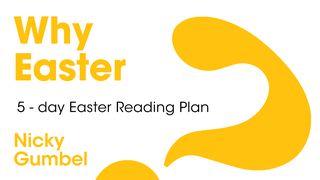Moving From Stuck to Unstuck by Jennifer MaggioSýnishorn

Follow Your Heart?
The heart is one of the primary reasons why so many feel stuck in life. The weight hinders the ability to move forward with all God has planned. Why is this such a huge problem?
Last week, we touched on the heart being a key component of why many feel disabled, like they are barely functioning. We know culture implores us to "follow your heart," but God's Word highlights its deceit and wickedness. (See Jeremiah 17:9.)
In biblical Hebrew, the heart is where we experience emotions and form thoughts. In fact, ancient Israelites didn't even have a word for "brain" that we know of, so it is often thought that the "heart and mind" would have been the same thing in ancient Israel. The heart is where we make choices. It's best understood as the "inner person" – thoughts, feelings, and intentions. The Bible tells us that our hearts are fundamentally broken because of sin. The good news is that God can change our hearts in an instant – the moment we place our faith in Jesus.
The world says to follow your heart, and yet God says to guard and protect it. While it is culturally normal to say, "Trust your heart or follow your heart," the very nature of our heart – our flesh and emotions – is deceitful. We can get very confused by trusting our hearts. And our hearts can lead us astray. Consider this.
Trusting in our hearts is just another way of trusting in man. What is trusting in man? It means we are trusting in ourselves or other human beings to do what only God can. It means we think we can bring our own fulfillment, joy, or provision, or we think a mortal man can. We can get deceived into thinking if we work hard enough at it, we can fulfill our own heart's desires or move our own mountains with our own strength. Things like "I am in control of my own destiny, or I must lean on my own inner strength" are world views, not God's views. And frankly, they are sent straight from the enemy of our souls. If we lean on our own strength, we will first be disappointed in its insufficiency, but we can also be deceived into thinking God is less important than He is. This is how many who were even once active churchgoers and professing Christians wander so far into worldly things. Our hearts & emotions are very temporary. There is a real danger in trusting our hearts and not seeking wisdom and wise counsel from the Holy Spirit.
Additionally, trusting our hearts often means moving on how we feel. This can be dangerous, as well. God has never once called us to move on our emotions in Scripture. Many times, we don't feel like doing what God has instructed us to do! However, we command our heart and flesh to get in alignment with the Lord. We move forward in obedience through the Holy Spirit's wisdom, prayer, wise counsel, and God's Word. God is not hasty, yet many of us move forward with a decision in haste based on how we are feeling, not what God said. In fact, we've moved so long on how we feel about a thing that we cannot even hear what the Lord is saying about that thing.
As we consider our journey through becoming completely free in Christ, we must look at the biblical principles that offer said freedom. One of these principles is to avoid the hasty following of one's heart and instead settle into the habit of waiting upon the Lord and hearing His voice to lead. Further, we must trust in God's ways, not man's.
Points to Ponder:
- How often have you allowed emotions to lead your decision-making? Did you submit to God's wisdom or your own? How will this affect your future choices?
- Have you mistaken self-reliance for spiritual strength? How do those two things look similar? According to the Word, how are they different?
Ritningin
About this Plan

Jesus died on a cross so that you may have a free-indeed life, according to John 8:36, so why do you still feel stuck? Join us for this 30-day devotional, as we look at biblical principles on why so many are stuck, and most importantly, what to do about it. The next 30 days could very well change your life! **NOTICE:** This content includes sensitive themes that some readers may find difficult: Mentions of physical, sexual, or emotional abuse. Please take care as you read.
More








